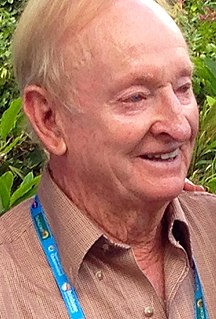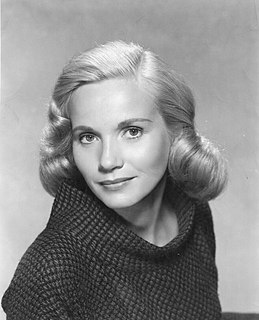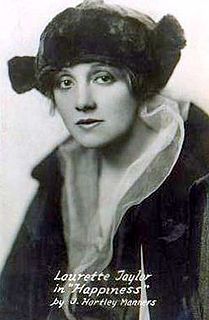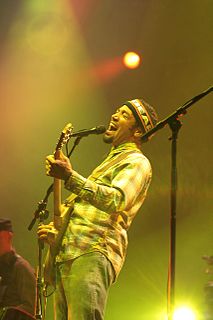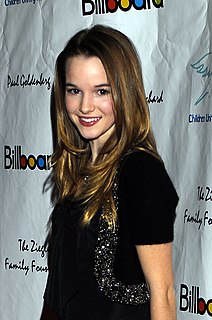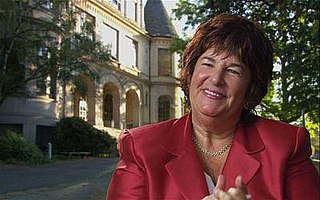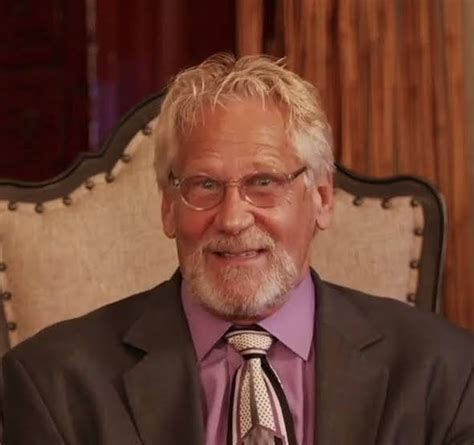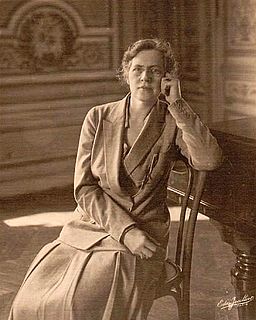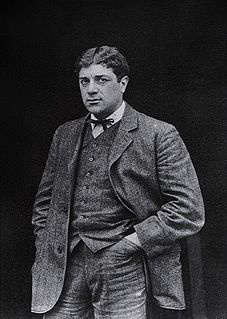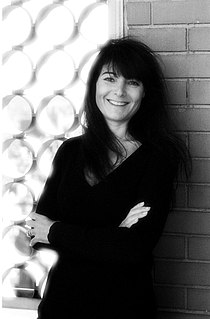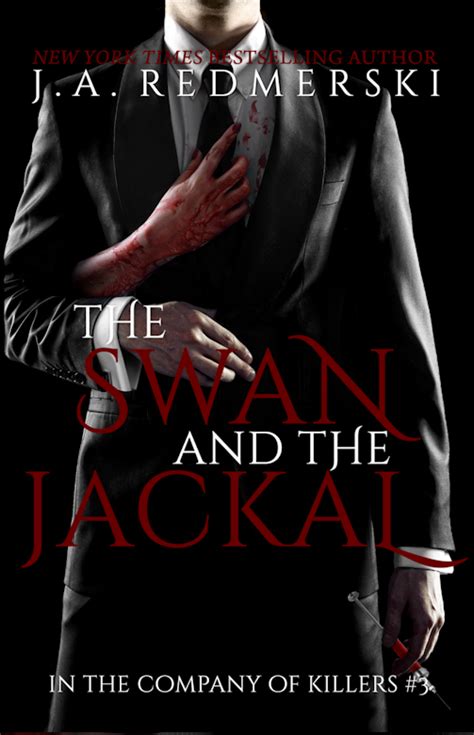Top 1200 Emotion Quotes & Sayings - Page 4
Explore popular Emotion quotes.
Last updated on April 20, 2025.
As an actor, it's all about whether you can sell the emotion on your face... that desperation, the panic and rage that comes with combat. The emotion of combat is important to me. I mean, you feel almost sick if you see a real fight where someone is getting badly beaten up. You can get emotionally involved in combat that has nothing to do with you in real-life, let alone if you are actually in it... or it's someone you know, and so you should have those same feelings on film.
Make it a habit to ask yourself: What's going on inside me at this moment? That question will point you in the right direction. But don't analyze, just watch. Focus your attention within. Feel the energy of the emotion. If there is no emotion present, take your attention more deeply into the inner energy field of your body. It is the doorway into Being.
I don't know how I would have gotten through this life without someone to really love me and I love them, him, and them [family]. It's forgiving. Love is very forgiving to one another and your friends and it's a powerful, powerful emotion and it's my favorite emotion in life. Now, write that down and read it and remember it.
The dancer's body is simply the luminous manifestation of the soul. The true dance is an expression of serenity; it is controlled by the profound rhythm of inner emotion. Emotion does not reach the moment of frenzy out of a spurt of action; it broods first, it sleeps like the life in the seed, and it unfolds with a gentle slowness. The Greeks understood the continuing beauty of a movement that mounted, that spread, that ended with a promise of rebirth.
Beautiful women seldom want to act. They are afraid of emotion and they do not try to extract anything from a character that they are portraying, because in expressing emotion they may encourage crow's feet and laughing wrinkles. They avoid anything that will disturb their placidity of countenance, for placidity of countenance insures a smooth skin.
Jesus, music has always been my first love. I use music in my work because it's the fastest way to an emotional place. You hear a song, and that memory comes right back-- you're there... Making music is immediate, and it's all about you. If you're playing guitar, the feeling comes through-- the way you bend the note, the intensity with which you hit the strings. With making films, although it's real emotion, it's false emotion. You're lying.
I recently read in the book My Stroke of Insight by brain scientist Jill Bolte Taylor that the natural life span of an emotion—the average time it takes for it to move through the nervous system and body—is only a minute and a half. After that we need thoughts to keep the emotion rolling. So if we wonder why we lock into painful emotional states like anxiety, depression, or rage, we need look no further than our own endless stream of inner dialogue.
Tears may be considered as the natural and involuntary resource of the mind overcome by some sudden and violent emotion, before ithas had time to reconcile its feelings to the change in circumstances: while laughter may be defined to be the same sort of convulsive and involuntary movement, occasioned by mere sur prise or contrast (in the absence of any more serious emotion), before it has time to reconcile its belief to contradictory appearances.
But it isn't only the terror everywhere, and the fear of being conscious of it, that freezes people. It's more than that. People know they are in a society dead or dying. They are refusing emotion because at the end of very emotion are property, money, power. They work and despise their work, and so freeze themselves. They love but know that it's a half- love or a twisted love, and so they freeze themselves.
We must believe that "emotion recollected in tranquillity" is an inexact formula. For it is neither emotion, nor recollection, nor without distortion of meaning, tranquillity. It is a concentration, and a new thing resulting from the concentration of a very great number of experiences which to the practical and active person would not seem to be experiences at all; it is a concentration which does not happen consciously or of deliberation. These experiences are not "recollected" and they finally unite in an atmosphere which is "tranquil" only in that it is a passive attending upon the event.
We may define "faith" as the firm belief in something for which there is no evidence. Where there is evidence, no one speaks of "faith." We do not speak of faith that two and two are four or that the earth is round. We only speak of faith when we wish to substitute emotion for evidence. The substitution of emotion for evidence is apt to lead to strife, since different groups, substitute different emotions.
I am often surprised when I think to count my graces, for the more I count, the more there seem to be. And if pride in my accomplishments is the emotion that I naturally feel when I focus on my gifts, gratitude is the emotion I feel as I become aware of the many graces that have shaped me and my gifts.
The more I drive myself into the depth of my inside, the more things come up to my vision, visibly or invisibly... I even do not know if I am seeing them with my eye or with my mind. I just need to copy them on my canvases. But this mental process is always overwhelming. I often have hard time to deal with my emotion on this state. You could call this depression on surface? But actually, so many 're-birth' and 'reform' are going on on my thoughts, inspiration, philosophy...etc in the underwater. I believe this struggle make my art real. My art always comes from my emotion.
Our lives are pretty calm. Merging on the freeway in the closest you get to risking your life. So what's missing now is that primal emotion of being scared to death, and I think that's why people crave thrills like roller coasters or scary movies. They give you the chance to feel this very primal emotion in a very controlled environment.
Ninety percent of our lives is governed by emotion. Our brains merely register and act upon what is telegraphed to them by our bodily experience. Intellect is to emotion as our clothes are to our bodies; we could not very well have civilized life without clothes, but we would be in a poor way if we had only clothes without bodies.
There's not a lot of room for un-ironic emotion in contemporary culture. I think that irony is an important tool in dealing with the world as we find it. It's a tool of protection, but it can also be a tool of incision to get to some truth. But along the way maybe we've lost some of what I think of as the power of straightforward emotion and earnestness and seriousness.
The two important facts I should say, are emotion, and then words arising from emotion. I don't think you can write in an emotionless way. If you attempt it, the result is artificial. I don't like that kind of writing. I think that if a poem is really great, you should think of it as having written itself despite the author. It should flow.
Products were once designed for the functions they performed. But when all companies can make products that perform their functions equally well, the distinctive advantage goes to those who provide pleasure and enjoyment while maintaining the power. If functions are equated with cognition, pleasure is equated with emotion; today we want products that appeal to both cognition and emotion.
Whenever we're all getting ready for a playoff game, you know how serious those games are, and you try to motivate your guys. There's a lot of emotion that goes into those games, and when I play, it's all about winning, and it's all about doing whatever it takes to fire guys up and to get that emotion running.
Vonnegut's war was necessary. And yet it was massacre and screaming and confusion and blood and death. It was the mammoth projection outward of the confused inner life of men. In war, the sad tidy constructs we make to help us believe life is orderly and controllable are roughly thrown aside like the delusions they are. In war, love is outed as an insane, insupportable emotion, a kind of luxury emotion, because everywhere you look, someone beloved to someone is being slaughtered, by someone whose own beloved has been slaughtered, or will be, or could be.
The challenge has always been to wrest emotion out of a [doll's] face that we think of as only having one emotion. It's moving a light, moving my camera; it's just this mental investment that I make, and suddenly, everything changes. Parenthetically, I have to say, I don't particularly like dolls, nor have I ever liked them. That's something I really wanted to get out there right away.
One extremely important purpose of emotions from an evolutionary perspective is to help us decide what to remember and what to forget. The cavewoman who could remember which cave had the gentle guy who gave her food is more likely to be our foremother than the cave woman who confused it with the cave that held the killer bear. The emotion of love (or something resembling it) and the emotion of fear would help secure her memories.
There are a couple of writers I admired who were very good at giving the character's emotion without stating what that emotion was. Not saying "He was feeling tense," instead saying, "His hand squeezed harder on the chair arm," as if staying outside the guy. I wanted to try doing that. I wanted to have a really emotional story in which the characters' emotions are never straight - out told to you, but you get it.
I think that animals aren't less intelligent than humans, they're just of a different intelligence. We have five million smell-sensitive cells in our nose, they have two hundred and fifty million - they can smell emotion. They can smell different types of emotion, they just have another type of intelligence.
When a candidate for public office faces the voters he does not face men of sense; he faces a mob of men whose chief distinguishing mark is the fact that they are quite incapable of weighing ideas, or even of comprehending any save the most elemental - men whose whole thinking is done in terms of emotion, and whose dominant emotion is dread of what they cannot understand. So confronted, the candidate must either bark with the pack or be lost... All the odds are on the man who is, intrinsically, the most devious and mediocre.
I think all writing is political. All writing shows a preoccupation with something, whatever that thing might be, and by putting pen to paper you are establishing a hierarchy of some sort - this emotion over that emotion, this memory over that memory, this thought over another. And isn't that process of establishing a hierarchy on the page a kind of political act?
If you have peace of mind, when you meet with problems and difficulties they won’t disturb your inner peace. You’ll be able to employ your human intelligence more effectively. But, if your mental state is disturbed, full of emotion, it is very difficult to cope with problems, because the mind that is full of emotion is biased, unable to see reality. So whatever you do will be unrealistic and naturally fail.
Every instinct that is found in any man is in all men. The strength of the emotion may not be so overpowering, the barriers against possession not so insurmountable, the urge to accomplish the desire less keen. With some, inhibitions and urges may be neutralized by other tendencies. But with every being the primal emotions are there. All men have an emotion to kill; when they strongly dislike some one they involuntarily wish he was dead. I have never killed any one, but I have read some obituary notices with great satisfaction.
Awareness is the key. Do we see the stories that we're telling ourselves and question their validity? When we are distracted by strong emotion, do we remember that it is our path? Can we feel the emotion and breathe it into our hearts for ourselves and everyone else? If we can remember to experiment like this even occasionally, we are training as a warrior. And when we can't practice when distracted but KNOW we can't, we are still training well. Never underestimate the power of compassionately recognizing what's going on.
As my body lay dead on that stretcher (he later recovered from being struck by lightning attracted by his cell phone), I was reliving every moment of my life, including my emotions, attitudes, and motivations. The depth of emotion I experienced during this life review was astonishing. Not only could I feel the way both I and the other person had felt when an incident took place, I could also feel the feelings of the next person they reacted to. I was in a chain reaction of emotion, one that showed how deeply we affect one another.
Nothing in oratory is more important than to win for the orator the favour of his hearer, and to have the latter so affected as to be swayed by something resembling an impulse of the spirit impetu quodam animi or emotion perturbatione, rather than by judgment or deliberation. For men decide far more problems by hate, or love, or lust, or rage, or sorrow, or joy, or hope, or fear, or illusion, or some other inward emotion aliqua permotione mentis, than by reality or authority, or any legal standard, or judicial precedent or statute.
There's a lot of mythological stories you can tell. There's not just one. I appreciate all of those different kinds, but what I was personally missing was grand, classic, true-north hero. Pure and simple emotion, and also aiming for big time emotion, like love story as well, in a very sincere way. Like 'Superman: The Movie' had done for me.
The first time we did it [voice-over], I was trying to use my face and my eyes more so and really portray that emotion, and that didn't matter. I realized you have to bring that emotion into the way you sound, and all those different layers have to be in your voice instead of the way you are wrinkling your eyebrows or whatever. I had to learn how to do that.
I couldn't portray a women in all her natural loveliness.. I haven't the skill. No one has. I must, therefore, create a new sort of beauty, the beauty that appears to me in terms of volume of line, of mass, of weight, and through that beauty interpret my subjective impression. Nature is mere a pretext for decorative composition, plus sentiment. It suggests emotion, and I translate that emotion into art. I want to express the absolute, not merely the factitious woman.
I would not unduly praise the virtue of restraint. It is often merely temperamental. But it is not always a sign of coldness. It may be pride. There can be nothing more humiliating than to see the shaft of one's emotion miss the mark of either laughter or tears. Nothing more humiliating! And this for the reason that should the mark be missed, should the open display of emotion fail to move, then it must perish unavoidably in disgust or contempt.
I wanted to see if I could create something that is emotional between people. Existing games are about killing each other or killing something together. The idea of social emotion means people need to share feelings. At that moment, the players are in sync. The problem [with many games] is there's no chance to share emotion. Most of them are busy, [there are] explosions everywhere. So we got rid of all the background noise and we had to get rid of the guns.
Our lives are pretty calm. Merging on the freeway in the closest you get to risking your life. So what’s missing now is that primal emotion of being scared to death, and I think that’s why people crave thrills like roller coasters or scary movies. They give you the chance to feel this very primal emotion in a very controlled environment.
There is a fine line between love and hate, or haven't you heard? Sometimes it's hard to decipher exactly which emotion is strongest." I raised my chin. "I don't love you either." He lowered his head and watched me from underneath his dark lashes. "Are you certain? Because the emotion pouring out of you every time I'm near you is certainly not disinterest." "That doesn't mean it's love." "It could be, I promise you. Take off that sweater and give me ten minutes, and you'll believe beyond a shadow of a doubt you're in love.
To invent a story, or admirably and thoroughly tell any part of a story, it is necessary to grasp the entire mind of every personage concerned in it, and know precisely how they would be affected by what happens; which to do requires a colossal intellect: but to describe a separate emotion delicately, it is only needed that one should feel it oneself; and thousands of people are capable of feeling this or that noble emotion, for one who is able to enter into all the feelings of someone sitting on the other side of the table.
Like, shopping, in a way, has the same dynamic as smoking. Because what happens in shopping is, you're bored, you're frustrated, you have this negative emotion and instead of letting the emotion play out, be honest, confronting it, and letting yourself feel pain, you go buy something that takes you out of yourself and feels fun and exciting. But you have to go back to yourself.
One thing was absolutely certain—it was a given for Kazuo. Although he might not have particularlyrealized it, or more appropriately, perhaps because he was incapable of coming to such a realization, this was what it came down to: he, Kazuo Kiriyama, felt no emotion, no guilt, no sorrow, no pity, towards the four corpses, including Mitsuru's—and that ever since the day he was dropped into this world theway he was, he had never once felt a single emotion.
A great emotion is too selfish ; it takes into itself all the blood of the spirit, and the congestion leaves the hands too cold to write. Three sorts of emotion produce great poetry - strong but quick emotions, seized upon for art as soon as they have passed, but not before they have passed ; strong and deep emotions in their remembrance along time after ; and false emotions, that is to say, emotions felt in the intellect. Not insincerity, but a translated sincerity, is the basis of all art.
Do not flinch from experiences that might destroy your beliefs. The thought you cannot think controls you more than thoughts you speak aloud. Submit yourself to ordeals and test yourself in fire. Relinquish the emotion which rests upon a mistaken belief, and seek to feel fully that emotion which fits the facts.
The most beautiful emotion we can experience is the mystical. It is the power of all true art and science. He to whom this emotion is a stranger, who can no longer wonder and stand rapt in awe, is as good as dead. To know that what is impenetrable to us really exists, manifesting itself as the highest wisdom and the most radiant beauty, which our dull faculties can comprehend only in their most primitive forms - this knowledge, this feeling, is at the center of true religiousness. In this sense, and in this sense only, I belong to the rank of devoutly religious men.
It’s not only about sadness. In truth, sadness really has little to do with it. Depression is pain in its purest form and I would do anything to be able to feel an emotion again. Any emotion at all. Pain hurts, but pain that’s so powerful that you can’t feel anything anymore, that’s when you start to feel like you’re going crazy.
The Puritan, of course, is not entirely devoid of aesthetic feeling. He has a taste for good form; he responds to style; he is even capable of something approaching a purely aesthetic emotion. But he fears this aesthetic emotion as an insinuating distraction from his chief business in life: the sober consideration of the all-important problem of conduct. Art is a temptation, a seduction, a Lorelei, and the Good Man may safely have traffic with it when it is broken to moral uses--in other words, when its innocence is pumped out of it, and it is purged of gusto.


